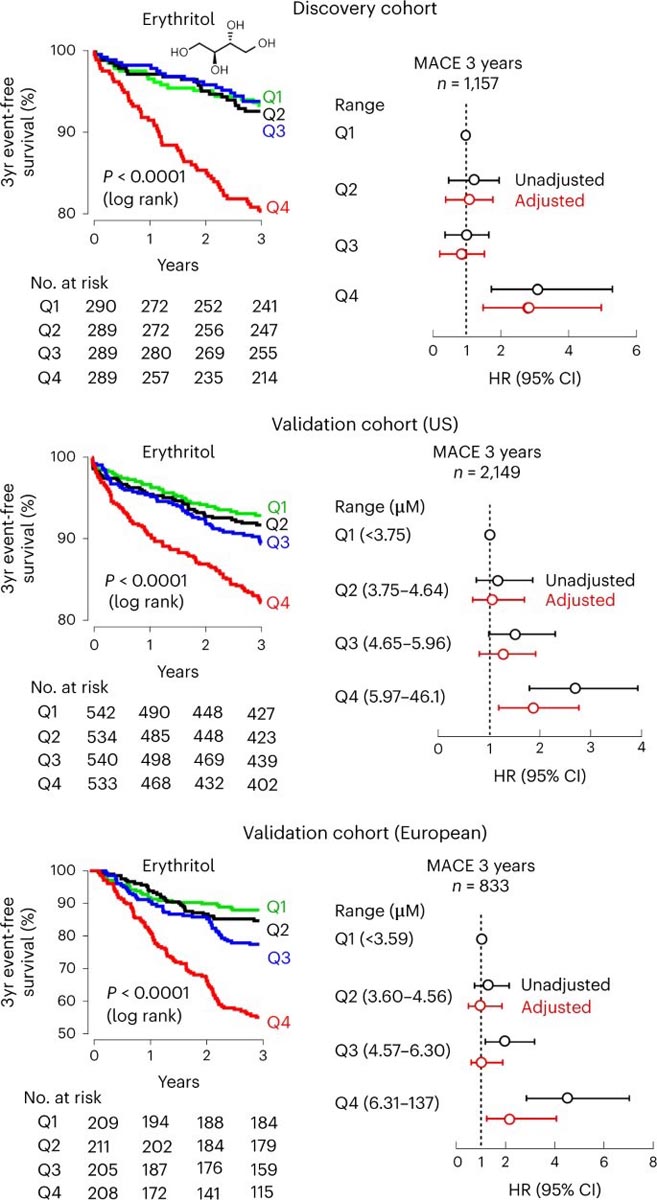Highlights Metabolomics analyzes reported an increased risk of cardiovascular disease associated with the artificial sweetener erythritol, supported by mechanistic studies showing that high levels of erythritol increase platelet reactivity and thrombosis formation. |
Artificial sweeteners are widely used sugar substitutes, but little is known about their long-term effects on cardiometabolic disease risks. Here we examine the commonly used sugar substitute erythritol and the risk of atherothrombotic disease.
In initial untargeted metabolomic studies in patients undergoing cardiac risk assessment (n = 1,157; discovery cohort, NCT00590200), circulating levels of multiple polyol sweeteners, especially erythritol, were associated with an incident (3-year) risk of events. major adverse cardiovascular events (MACE; includes death or non-fatal myocardial infarction or stroke).
Subsequent targeted metabolomics analyzes in independent US (n=2149, NCT00590200) and European (n=833,DRKS00020915) validation cohorts of stable patients undergoing elective cardiac evaluation confirmed this association (adjusted hazard ratio of fourth versus first quartile (95% confidence interval), 1.80 (1.18–2.77) and 2.21 (1.20–4.07), respectively).

At physiological levels, erythritol increased platelet reactivity in vitro and thrombosis formation in vivo .
Finally, in a prospective pilot intervention study (NCT04731363), erythritol intake in healthy volunteers (n = 8) induced marked and sustained (>2 days) increases in plasma erythritol levels well above thresholds associated with increased platelet reactivity and potential for thrombosis in in vitro and in vivo studies.
Our findings reveal that erythritol is associated with the incident risk of MACE and promotes enhanced thrombosis.
Studies evaluating the long-term safety of erythritol are warranted.
















